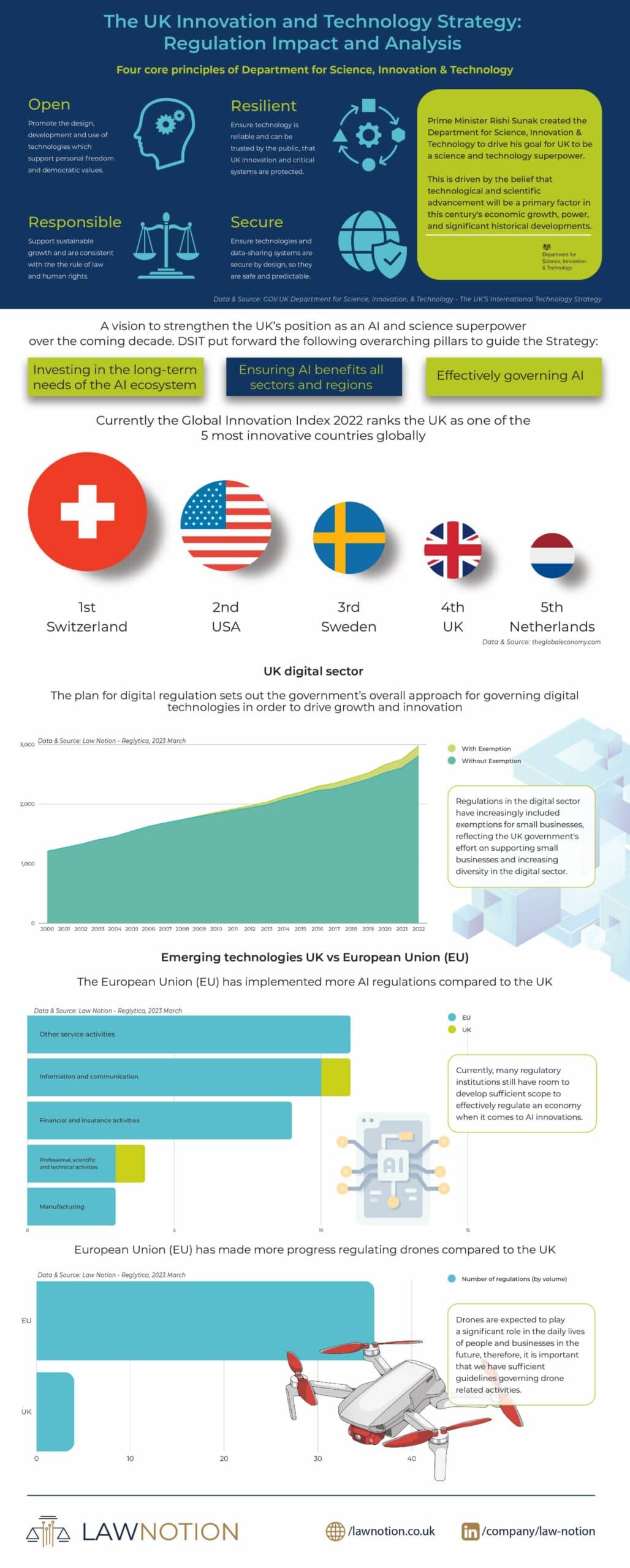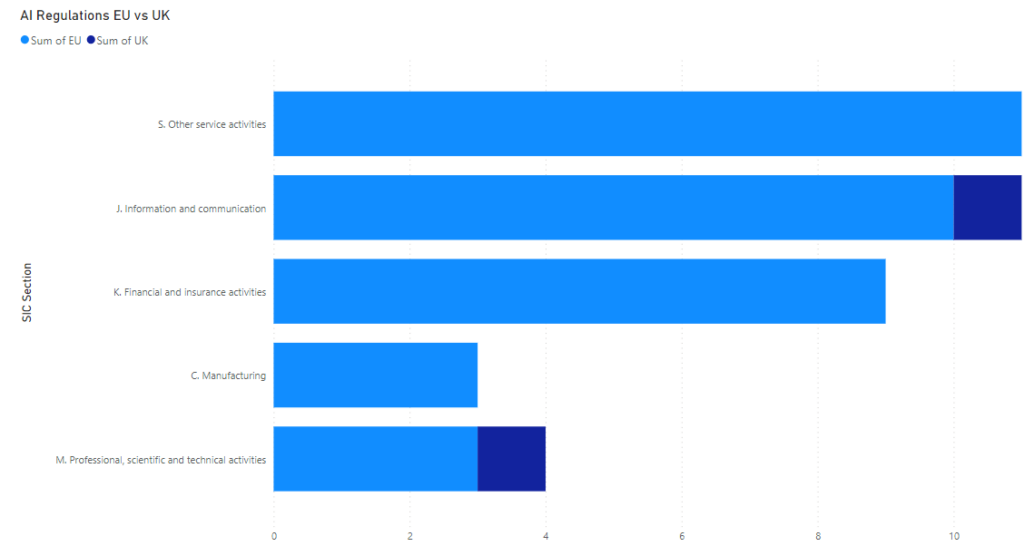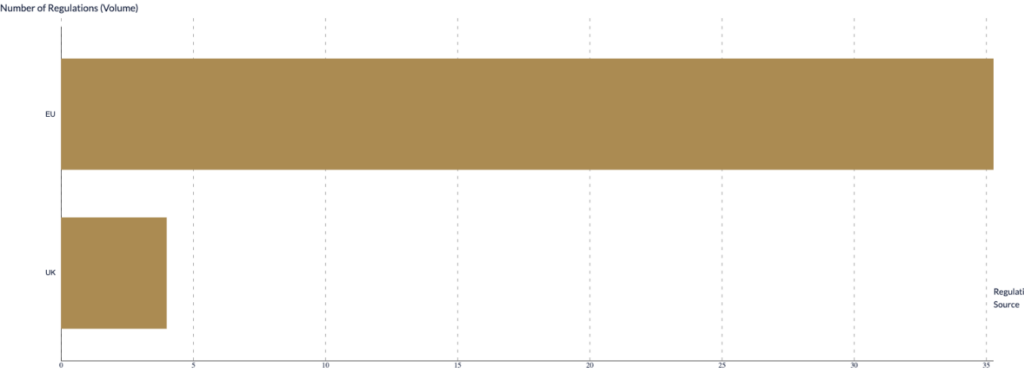
The UK has performed a leading role in many technological advancements that have benefited our country and the world. The Global Innovation Index 2022 ranks the UK as one of the 5 most innovative countries globally. The Science and Technology Superpower agenda promoted by the UK government is driven by the belief that technological and scientific advancement will be a primary factor in this century’s economic growth, power, and significant historical developments.
To fully realise the transformative potential of the Fourth Industrial Revolution, any country wanting to stay competitive must adopt a more agile, flexible approach to regulation. Let’s look at the strategy summary and how regulation affects technological progress and development.
The UK Government Innovation Strategy
The former Business, Energy, and Industrial Strategy (BEIS) released its Innovation Strategy in July 2021, detailing the government’s plans to encourage and facilitate innovation across all sectors of the economy. The Innovation Strategy outlines the UK government’s plan to support businesses and institutions leading the way in innovation, with a focus on four key areas:
- Unleashing Business: To fuel innovation in businesses by ensuring effective access to private and public investment.
- People: The UK will strive to become the most exciting destination for talented innovators, creating an environment that attracts and nurtures top talent.
- Institutions and Places: To ensure that research and development (R&D) institutions are meeting the needs of businesses and that innovation is promoted in places across the UK.
- Missions and Technologies: Stimulating innovation in critical technologies and missions that will provide the UK with a strategic advantage and address some of the country’s greatest challenges.
UK Pro-Innovation Regulation of Technologies
The Prime Minister and the Secretary of Technology recently unveiled the government’s strategy to “cement the UK’s place as a science and technology superpower by 2030.” The plan seeks to improve the UK’s infrastructure, investment, and skills in cutting-edge technologies like quantum computing, supercomputing, and artificial intelligence with the help of over £370 million in new government funding.
The plan also includes the creation of a new government agency focused on advancing scientific research and technological development. A dedicated Department for Science, Innovation, and Technology (DSIT) will drive innovation to improve public services, generate new and higher-paying jobs, and expand the economy.
AI Regulation Approach in the UK
The UK government confirmed its intention to leave the EU’s regulatory framework in 2022 and published an AI Regulation Policy Paper and AI Action Plan. The plan details the government’s efforts to achieve the AI strategy’s aims by focusing on three key areas:
- investing in the long-term needs of the AI ecosystem
- ensuring AI benefits all sectors and regions
- effectively governing AI

The European Union (EU) has implemented a significant number of regulations related to artificial intelligence (AI) similar to other regions.
The UK government does not have a defined plan to create a centralised AI regulatory body or coordinating agency like the EU Artificial Intelligence Board. Regulators and policymakers will be urged to prioritise high-risk concerns over hypothetical or low-risk issues related to AI and to consider lighter-touch options in the first instance, such as voluntary or guidance-based approaches, to avoid unnecessary burdens.
Emerging Technology
While the UK has not adopted all EU regulations, many of them remain an integral part of the drone laws in 2023. There have been several changes to drone law since 2021, and these changes affect all drone use, whether you are flying for pleasure in the Open Category or for a task under an Operational Authorisation.

European Union (EU) has significantly more regulations pertaining to drones compared to the UK.
Drones are expected to play a significant role in the daily lives of people residing in towns and cities throughout the UK. However, there is a pressing need to develop and refine laws and regulations concerning their use. To achieve this, policymakers, regulators, and governments must work together to establish a shared vision for the future of drones.
Digital Regulation
The Plan for Digital Regulation defines digital regulation as “the range of regulatory tools used by government, regulators, businesses, and other bodies to manage the impact digital technologies and activities can have on individuals, businesses, the economy, and society.”
Norms, statutory codes of conduct, self-regulation, and rules in primary legislation are all parts of the government’s approach to digital regulation. The UK’s Data Protection and Digital Information (No. 2) Bill and Online Safety Bill are two examples of legislation outlined in the plan.
The plan also includes fundamental principles the government believes policymakers should follow when creating digital regulation.
- Actively promote innovation
- Achieve forward-looking and coherent outcomes
- Exploit opportunities and address challenges in the international arena
Regulation in digital sectors
The UK government’s strategy for regulating the digital sector is described as “proportionate and agile” in the government’s Plan for Digital Regulation. It was stated last year that large corporations with up to 500 employees would be given the same exemption from new regulations as small businesses with fewer than 50 employees.

Regulations in the digital sector have increasingly included exemptions for small businesses.
The UK government needs an up-to-date understanding of the size of the digital workforce in the UK and where interventions may need to be prioritised to boost the digital sector, both of which can be achieved by reviewing the definition of digital occupations.
What’s next for the UK Innovation & Technology Regulation?
To properly evaluate the effects on technology & innovation, regulators and policymakers should conduct a cost-benefit analysis and regulatory impact assessments. Law Notion – Reglytica is a regulatory analysis tool that empowers policymakers to analyse regulations in different aspects of innovation. It can help you develop a nuanced understanding of the problem before deciding whether to introduce or change regulation or whether to intervene based on existing regulatory frameworks.
Contact Law Notion to learn more about how Reglytica can help you make informed decisions about the regulations surrounding innovation that led to a more dynamic and innovative regulatory landscape.
